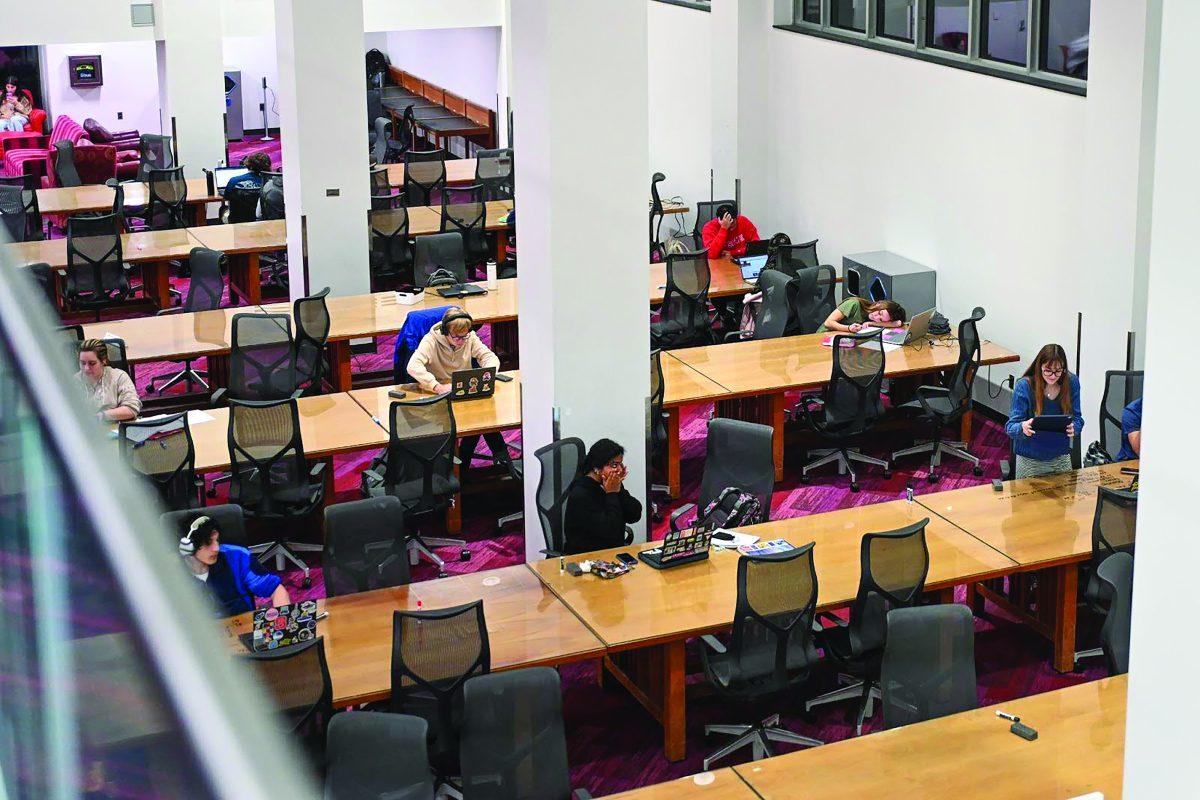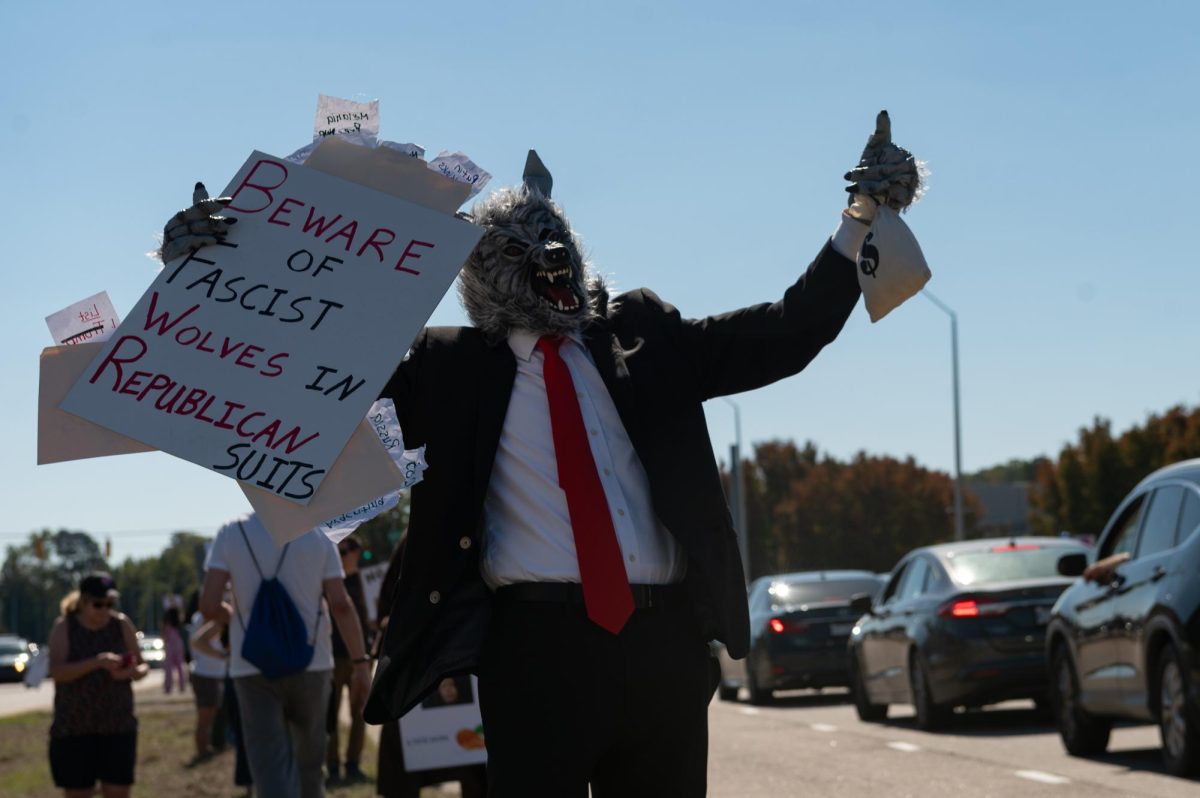Pakistan President Gen. Pervez Musharraf imposed emergency rule Nov. 3, suspending the constitution, removing judges from positions and arresting opposition leaders, eliciting various responses.
According to Musharraf’s “Proclamation of Emergency,” he imposed emergency rule because of an increase in terrorist activities.
Stephen Kleinschmit, second-year graduate student in public administration, said Musharraf’s claims could be misleading.
“Islamic extremism doesn’t seem to be much more prevalent now than other times in Pakistan’s history,” Kleinschmit said. “Thus the timing seems to confirm the assertion that this is an attempt by an increasingly unpopular president to continue to hold power after his (debatably) legal mandate has expired.”
The president’s actions have provoked mixed responses from those with ties to Pakistan.
Muhammad Latif, a 2006 graduate living in Pakistan, said in an e-mail Musharraf’s imposition of emergency rule stems from the country’s assisting the War on Terror. Latif said Pakistan’s military andintelligence agency used “illegal and immoral tactics” to detain suspects, and when the Supreme Court started pursuing cases against the government, Musharraf responded by declaring emergency rule.
“Musharraf feared that the Court would rule against him, so he declared an emergency and issued a ‘Provisional ConstitutionalOrdinance,'” Latif said. “Most of the judges of the Supreme Court refused to take a new oath under this PCO and they were removed from their posts.”
Others, like 2005 graduate Umar Waheed, believe political opposition parties are trying to disrupt the government.
“They’re trying to capitalize on any opportunity no matter how many people die so that they can get rid of the President Musharraf and the government,” Waheed said. “On the other hand, Musharraf, who hasfought so hard to suppress these terrorist activities, has brought the country from chaos to as much stability as possible.”
Omer Siddiqui, sophomore in agricultural and environmental technology from Karachi, said the situation is confusing because a lot is going on at once, but that the state of emergency isn’t the only answer.
“I don’t know what other people think about Musharraf and how he’s handling the situation,” Siddiqui said. “I personally support him and think he’s one of the best presidents we’ve had in a while.”
Taha Imam, 2007 graduate, said this is a sad moment for Pakistanis.
“Due to political infringements, these things are happening, and it’s all about power,” Imam said. “I must say this is the brainchild of the west and its foreign policy that has also led to these circumstances.”
Musharraf gained power in 1999 after overthrowing Prime Minister Nawaz Sharif, and has served since as both president and Army Chief of Staff.
Some have opposed his latter position because they don’t want both executive responsibilities in the hands of one person. Pakistan’s Supreme Court began questioning the legality of Musharraf’s running in elections, meant to end 8 years of direct military rule.
“The Supreme Court was expected to rule against Musharraf’s position in the upcoming elections, but this issue has been eliminated by the state of emergency,” Kleinschmit said. “Many media outlets worldwide refer to this declaration as a ‘second coup.'”
Musharraf has said elections will take place by Jan. 9, but likely under emergency rule. Kleinschmit said an election during this kind of situation is unfair.
“Significant numbers of opposition parties and leaders are under arrest, media outlets are sequestered and the army can be used as a means of voter intimidation and suppression, those who criticize the government risk imprisoment,” he said.
In a briefing Wednesday, White House Press Secretary Dana Perino said the administration wants Musharraf to step down from his militarial position and end emergency rule.
“We don’t see how it is possible to have free and fair elections under emergency rule,” Perino said, according to a briefing transcript. “You want to have emergency rule lifted so that people can protest peacefully, or that they could campaign, and so that a free media can cover the election as we do here.”
Pakistan has been an ally to the U.S., helping fight extremists and capturing suspected terrorists, Perino said. But Musharraf’s recent actions could backfire, Kleinschmit said.
“Opposition groups could be radicalized by the imposition of martial law and non-credible elections, particularly hard-line Islamists,” he said. “This could also result in the fracturing of the country on ethnic lines, much like what has happened in Iraq. This would be a very dangerous situation in a country armed with nuclear weapons.”
The U.S. administration is becoming uneasy about Pakistan’s nuclear materials, according to reports. But that’s not the only thing concerning the administration.
According to The International News, about 75 percent of supply lines to troops in Afghanistan is transported through or over Pakistan, causing the Pentagon to make backup plans in case the situation continues or worsens.
“If President Musharraf loses the battle and is thrown out of power, the chances are some extremists may get into power and will create more chaos within the country, and that will affect Pakistan’s relationship with its allies across the world., U.S. being one of them because they are very strong allies with Pakistan,” Waheed said.
Former Prime Minister Benazir Bhutto and Sharif have become outspokenopponents of Musharraf’s actions. Bhutto, considered an ally to theU.S., has been placed under house arrest because of her opposition.
“One-third of the lawyers are in jails, people protesting have beenbaton charged and dispersed, political leaders [have been] placedunder house arrest,” Latif said. “[S]tudents and other members ofcivil society are campaigning for the restoration of the judges andconstitution, and they have taken quite a battering from the policeforces.”
Latif said he is angry at U.S. policy towards Pakistan.
“They continue to support Musharraf, who is highly unpopular, and they continue to meddle and try to control our internal affairs by brokering deals between Musharraf and Benazir Bhutto…trying todivide the Pakistani society between moderates…and extremists, thereby creating a divide for a possible civil war in this country, pushing our leaders and military to fight our own people in the garb of ‘War on Terror,'” he said. “When will the U.S. learn?”




